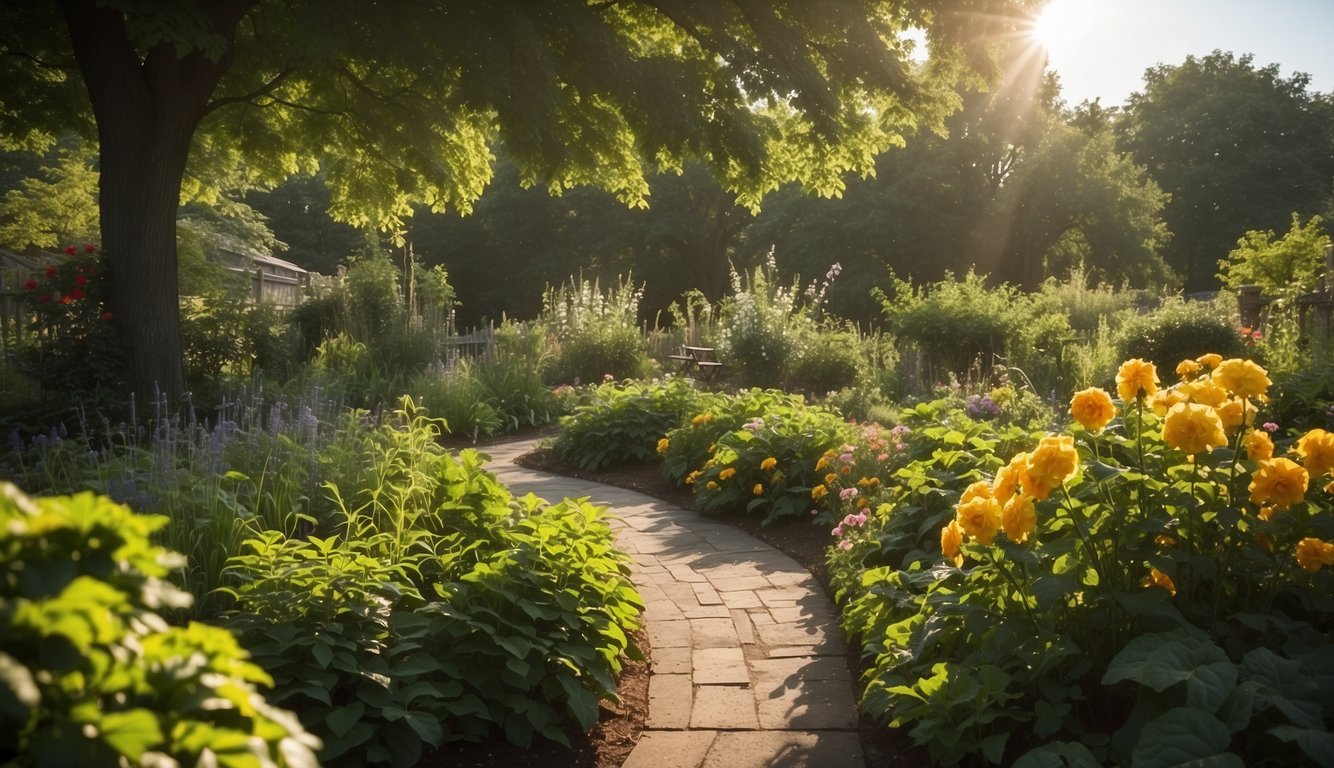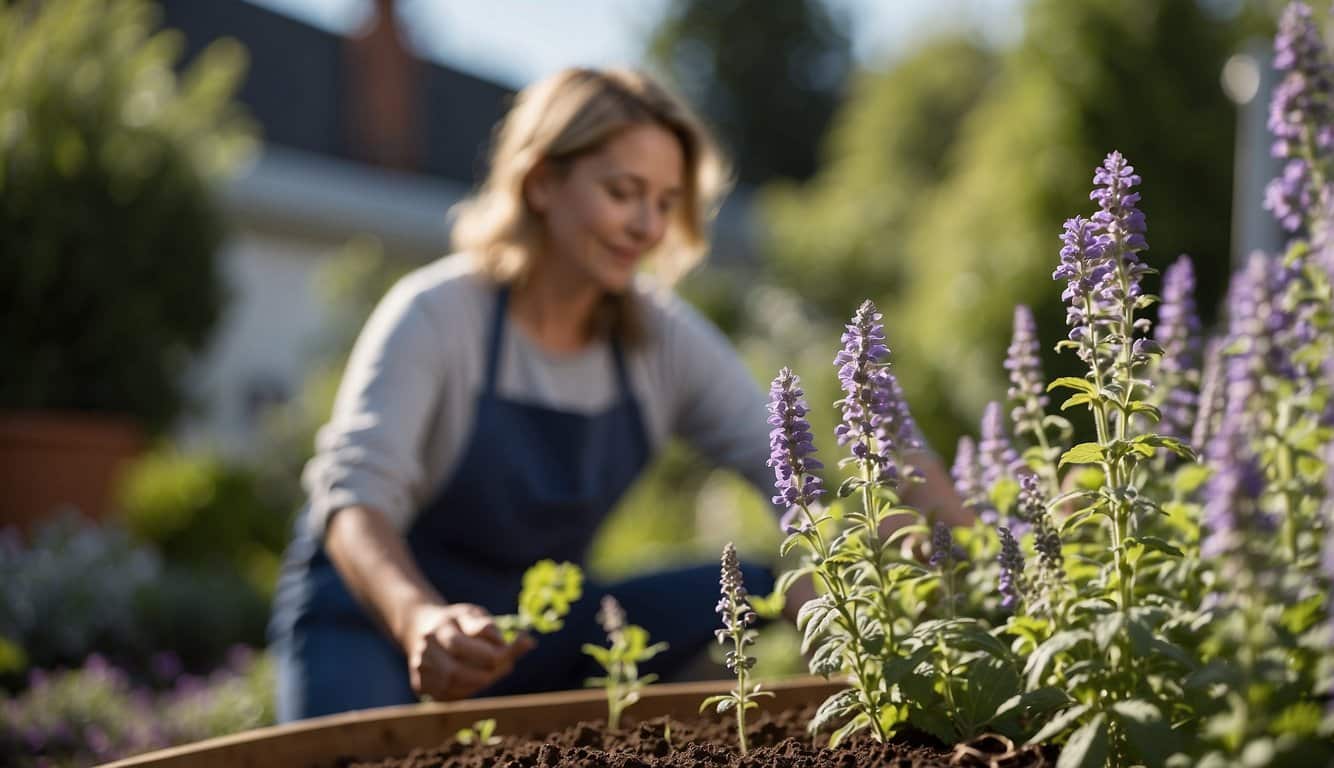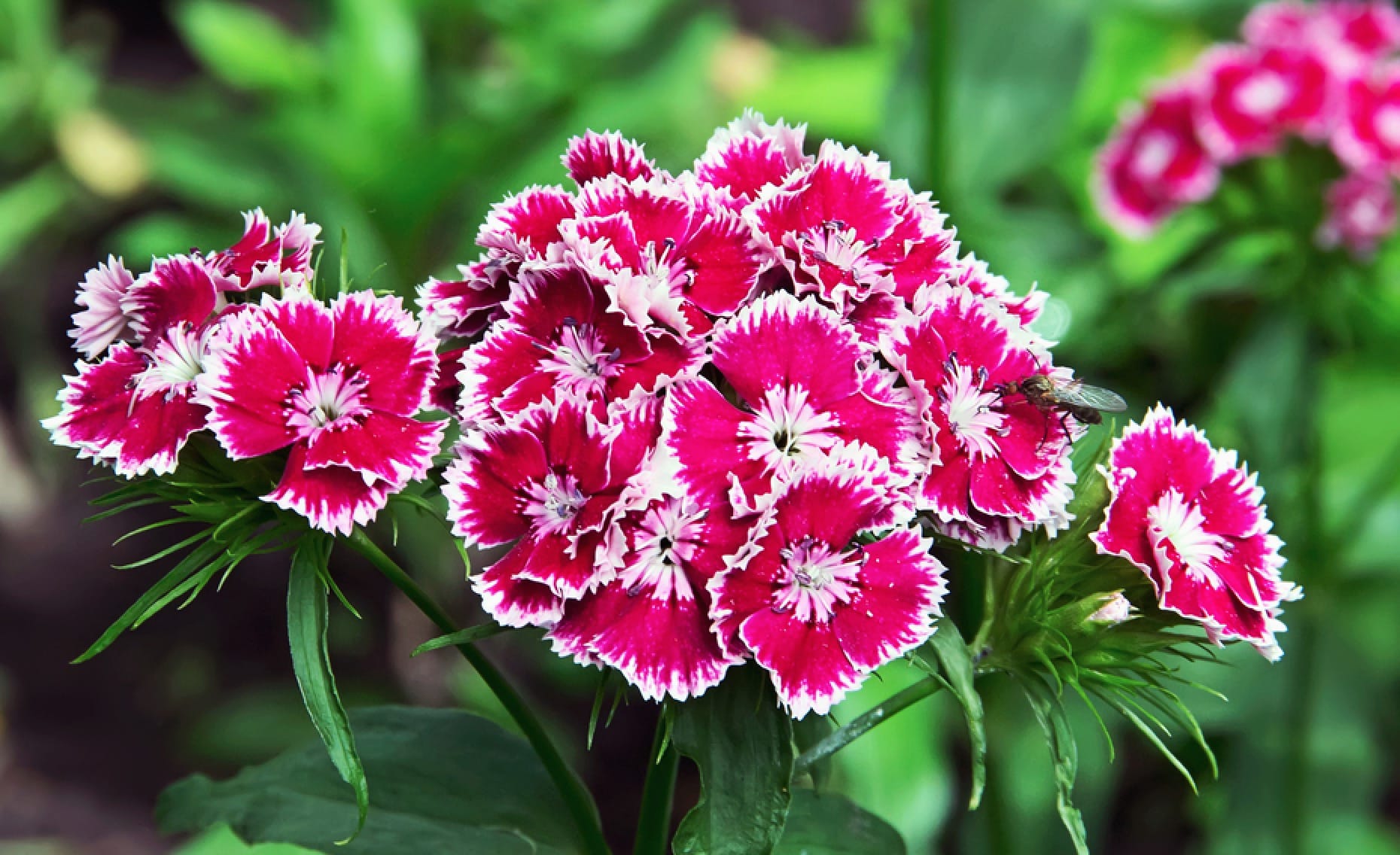Physical Health Benefits

Gardening offers a multitude of physical health benefits that may not be immediately obvious.
As a senior in Illinois, engaging in gardening activities can lead to improved physical health in numerous ways.
Enhanced Mobility and Dexterity
Through gardening, you engage in diverse movements such as stretching, reaching, and bending.
Activities like planting, weeding, and pruning require fine motor skills and agility, which can help maintain and even improve your hand strength and coordination over time.
Increased Physical Exercise
Gardening acts as a form of low-impact exercise, promoting cardiovascular health.
It’s an enjoyable way for you to stay active, as it involves walking, squatting, and lifting.
Regular participation can lead to increased endurance and stamina, contributing to overall physical fitness.
Exposure to Vitamin D
Spending time outdoors in your garden allows you to absorb vitamin D from the sun, which is crucial for bone health and immune system function.
In Illinois, make sure to garden during safe sun exposure times to maximize vitamin D intake while being mindful of skin protection.
Mental Health Advantages
As you explore the world of gardening, you’ll uncover not just a bounty of fresh produce, but a wealth of mental health benefits to harvest as well.
Stress Reduction
When you immerse yourself in gardening activities, you’re participating in a natural stress-relieving process.
The act of tending to plants allows for a calming escape from the hustle of daily life.
Research has demonstrated that time spent in gardens is linked with lowered levels of the stress hormone cortisol, fostering a sense of peace and relaxation.
Cognitive Function Improvement
Gardening commands your full attention and engagement, sharpening your focus and mental clarity.
The required planning and learning in gardening are beneficial for keeping your mind active, which can be vital for sustaining cognitive health as you age.
Regular engagement in gardening has been found to potentially reduce the risk of dementia and improve memory retention.
Therapeutic Effects of Horticulture
Horticultural therapy has emerged as a recognized method for improving mental health.
Your interaction with plants can be therapeutic, helping to lift mood and providing a sense of achievement.
This form of therapy uses the tasks associated with horticulture—such as planting and pruning—as tools for improving mental well-being, enhancing emotional balance, and providing a tangible connection to the natural world.
Social and Community Engagement
Gardening in Illinois isn’t just about tending to plants; it’s about the roots you grow with others in your community. Here’s how you can enrich your social life and contribute to community development through gardening.
Opportunities for Socialization
Gardening offers you numerous chances to meet new people who share your interest in horticulture.
Participating in local gardening groups serves as a bridge to make and maintain friendships.
By engaging in these activities, you not only get your hands dirty but also build lasting connections:
- Group Gardening: By joining a gardening club, you have a regular schedule to interact and learn with peers.
- Workshops and Events: Attend educational workshops where gardeners gather to hone their skills and socialize.
- Volunteering: Offer your time and expertise at community gardens, which can introduce you to a diverse set of people.
Community Gardening Impact
When you partake in community gardening, you’re doing more than just cultivating plants; you’re nurturing community bonds and contributing to shared goals.
The collective effort in a community gardening project can foster a sense of belonging and collective identity, leading to:
- Shared Goals: As you and your fellow gardeners aim for a flourishing garden, a natural camaraderie forms.
- Local Enhancement: Your gardening efforts beautify local spaces and can improve your neighborhood’s appeal.
- Cross-generational Exchange: By engaging with gardeners of different ages, you contribute to a vibrant, intergenerational dialogue.
Nutritional Impact of Gardening
Gardening provides you, the seniors in Illinois, with unique nutritional benefits, crucial for maintaining good health and well-being.
Access to Fresh Produce
When you engage in gardening, you have the advantage of straight-from-the-garden access to fresh fruits and vegetables.
Fresh produce retains more nutrients than store-bought items that may have been transported over long distances. Your Illinois garden could include a variety of nutrient-rich options:
- Leafy greens: kale, spinach, and lettuce
- Root vegetables: carrots, beets, and radishes
- Legumes: peas and beans
- Fruits: tomatoes, strawberries, and peppers
With gardening, you can ensure the produce is grown organically and free from harmful pesticides, further safeguarding your health.
Healthy Eating Habits
Gardening encourages you to indulge in healthier eating habits.
When you grow your own food, you’re more likely to:
- Increase your consumption of fresh fruits and vegetables.
- Reduce your carbon footprint, by lowering reliance on store-bought products that require transportation.
- Incorporate variety in your diet, since a garden can host a range of different food items.
This contributes to a balanced diet, ranging in all the necessary vitamins and minerals that are essential for senior health, supporting systems from immunity to digestion.
Economic Advantages
Engaging in gardening offers you tangible economic benefits that can impact your daily life and long-term financial outlook.
Reduced Grocery Bills
Through gardening, you can decrease your grocery expenses by growing your own fruits, vegetables, and herbs. Consider the following:
- Type of Crop: Some crops such as tomatoes, bell peppers, and leafy greens can yield significant savings due to their higher cost in stores.
- Seasonal Planting: By planting seasonal crops, you ensure a steady supply of fresh produce, maximizing your garden’s cost-effectiveness.
Potential for Supplemental Income
Your garden might do more than just save money; it could become a source of income.
- Farmers’ Markets: Selling your surplus produce at local farmers’ markets can offer additional cash flow.
- Specialty Crops: Growing unique or high-demand varieties can command a higher price, making your garden’s output more lucrative.
Frequently Asked Questions
Gardening can be an enriching activity for seniors in Illinois, providing a range of benefits from social interaction to physical health improvements. Unearth the answers to some of the most common inquiries below.
You can expect gardening to offer significant social benefits, such as building a sense of community and fostering friendships.
Local community garden projects often provide a platform for you to connect and share knowledge with fellow garden enthusiasts.
How does gardening contribute to mental wellness in senior citizens?
Gardening is known to boost mental health by reducing stress and promoting relaxation.
The act of nurturing plants and engaging with nature can enhance your mood and provide a sense of accomplishment.
In what ways is gardening considered beneficial for the elderly population?
Gardening encourages you to stay active and engaged, providing both cognitive stimulation and the opportunity to learn new skills.
The process of planning, planting, and maintaining a garden keeps your mind sharp and your body moving.
What are the financial benefits of gardening for seniors on a fixed income?
For you, gardening can lead to cost savings on groceries if you choose to grow your own fruits, vegetables, and herbs.
Additionally, some Illinois senior programs may offer discounts on supplies or provide free access to community garden spaces.
Which type of garden design is most suitable and manageable for elderly individuals?
Raised garden beds or container gardens are ideal for you if you have mobility restrictions or prefer not to bend down or kneel.
These designs are not only easier to access but also can be tailored to your physical capacity and space availability.
Can gardening have a positive impact on physical health for seniors, and if so, how?
Yes, gardening can improve your physical health by increasing hand dexterity, building endurance, and contributing to your overall physical activity.
It’s a gentle but effective way to exercise, and it encourages you to spend time outdoors, benefiting from fresh air and sunlight.

